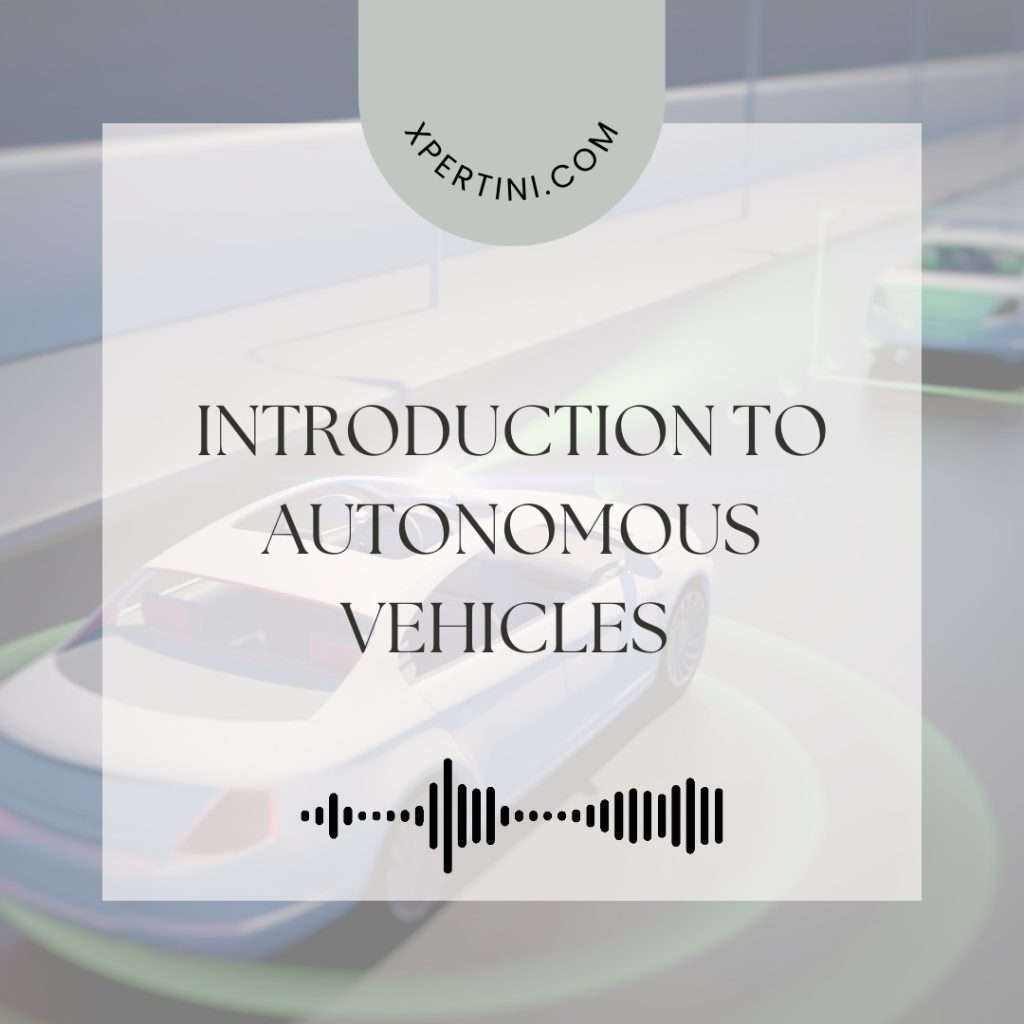Introduction to Autonomous Vehicles
Course Summary
In this comprehensive course on autonomous vehicles, learners delve into the world of self-driving technology, exploring its fundamental principles, cutting-edge advancements, and future prospects. Throughout the journey, they unravel the complexities of perception, mapping, control systems, and human-machine interaction, gaining a profound understanding of the multidisciplinary nature of this transformative field.
The course begins by elucidating the foundational concepts of autonomous vehicle technology, elucidating how sensors, actuators, and algorithms work in tandem to perceive and interpret the surrounding environment. Learners delve into the realm of control systems, understanding how algorithms facilitate real-time decision-making and navigation in mic environments.
As the course progresses, learners explore the pivotal role of machine learning in enhancing perception capabilities, dissecting various techniques for environment perception and mapping. They uncover the integration of GPS and other localization technologies, discovering how precise localization enables autonomous vehicles to navigate with accuracy and reliability.
nsiderations and regulatory challenges are addressed, prompting learners to reflect on the mmas inherent in autonomous vehicle decision-making and the need for robust regulatory frameworks to ensure safety and mitigate risks. Throughout, learners are encouraged to critically analyze the socio-economic impacts of autonomous vehicles, contemplating the implications for industries, urban planning, and society at large.
The course culminates with an exploration of emerging technologies and future trends shaping the autonomous vehicle landscape, offering insights into the potential challenges and opportunities on the horizon. Learners gain valuable insights into the diverse career paths available in the autonomous vehicle industry, equipping them with the skills and qualifications necessary to embark on a rewarding career journey.
By the course’s conclusion, learners emerge equipped with a comprehensive understanding of autonomous vehicle technology, poised to navigate the complexities of this mic field and contribute to its continued evolution and innovation.
Course Overview
This course provides a comprehensive oduction to the field of autonomous vehicles, exploring the technology, principles, and applications driving this rapidly evolving industry. Participants will gain a deep understanding of the fundamental concepts behind autonomous vehicles, their historical development, current state of the art, and future trends. Through a blend of theoretical knowledge and practical insights, learners will be equipped to pursue careers in this exciting and transformative field.
Course Objectives
Understand the basic principles of autonomous vehicle technology.
Explore the historical development and evolution of autonomous vehicles.
Analyze the current state of autonomous vehicle technology and its applications.
Evaluate the challenges and limitations of autonomous vehicles.
Examine the ethical and regulatory considerations related to autonomous vehicles.
Gain insight into the future trends and potential impact of autonomous vehicles.
Develop critical thinking and problem-solving skills relevant to autonomous vehicle development.
Explore career opportunities in the field of autonomous vehicles.
Engage in activities and projects to reinforce learning through practical experience.
Foster collaboration and communication skills essential for working in interdisciplinary teams.
Course Outcomes
Define the key principles underlying autonomous vehicle technology.
Describe the historical milestones in the development of autonomous vehicles.
Analyze the current state of autonomous vehicle technology and its limitations.
Evaluate the ethical and regulatory implications of autonomous vehicles.
Predict future trends and advancements in autonomous vehicle technology.
Apply critical thinking skills to solve problems related to autonomous vehicles.
Collaborate effectively in interdisciplinary teams to develop autonomous vehicle solutions.
Communicate complex concepts related to autonomous vehicles clearly and effectively.
Demonstrate practical skills in designing and implementing autonomous vehicle systems.
Explore and pursue diverse career opportunities in the field of autonomous vehicles.
Course Audience
Individuals aspiring to pursue careers in autonomous vehicle technology.
Professionals seeking to enhance their knowledge and skills in the field of autonomous vehicles.
Students interested in exploring the intersection of technology, engineering, and transportation.
Anyone curious about the future of transportation and emerging technologies.

